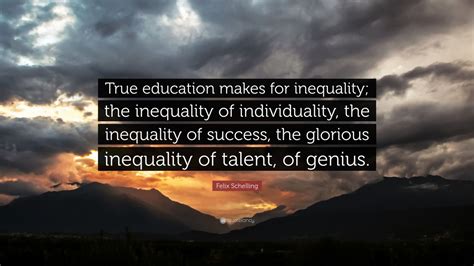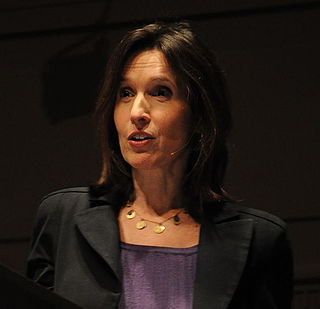A Quote by Joseph Stiglitz
It's very hard to persuade a young person who has seen the Great Recession, who has seen all the problems with inequality, to tell them inequality is not important and that markets are always efficient. They'd think you're crazy.
Related Quotes
The important issue is not how much inequality there is but how much opportunity there is for individuals to get out of the bottom classes and into the top. If there is enough movement upward, people will accept the efficiency of the markets. If you have opportunity, there is a great tolerance for inequality. That has been the saving grace of the American system.
There have always been two theories about inequality. One is that it reflects just deserts. The other is that there are large elements of exploitation and inequality of opportunities. The evidence is overwhelmingly that the increase in inequality is associated with those negative factors. If it were all social contribution, then when the top did better, they would be contributing to everybody's well-being. That trickle-down hasn't happened. We've seen median income, people in the middle, actually worse off than they were 25 years ago.
We are seeing a working-class, a middle class, which over the last three decades has seen their wages and income stagnate, while the very rich have seen their tax burden lighten in ways not seen in three or four decades. It's a face of a country that we need to look at and understand that inequality is perhaps the greatest threat to our economic recovery and democracy, and in that context we must take action.
"Free markets" is a very general term. There are all sorts of problems that will emerge. Free markets work best when the transaction between two individuals affects only those individuals. Most often, a transaction between you and me affects a third party. That is the source of all problems for government. That is the source of all pollution problems, of the inequality problem. This reality ensures that the end of history will never come.
I’ve never seen an exploding helicopter. I’ve never seen anybody go and blow somebody’s head off. So why should I make films about them? But I have seen people destroy themselves in the smallest way, I’ve seen people withdraw, I’ve seen people hide behind political ideas, behind dope, behind the sexual revolution, behind fascism, behind hypocrisy, and I’ve myself done all these things. So I can understand them. What we are saying is so gentle. It’s gentleness. We have problems, terrible problems, but our problems are human problems.
Canadians know that the promise of a recession didn't happen because of anything we did here. If you look at all the causes of the recession, problems in mortgage markets, the problems in the banking sector, the problems in government finance in countries like Greece, none of those problems were in present Canada.
Most people believe that inequality is rising - and indeed it has been rising for a while in a number of rich countries. And there is lots of talk and realization of this. It's harder to understand that at the same time, you can actually have global inequality going down. Technically speaking, national inequality can increase in every single country and yet global inequality can go down. And why it is going down is because very large, populous, and relatively poor countries like India and China are growing quite fast.

































